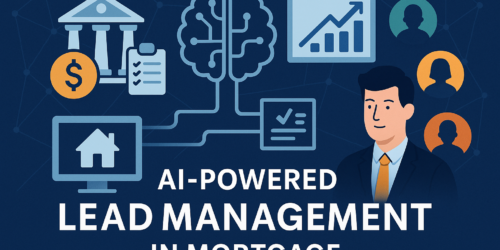Sales and marketing teams depend on each other to succeed, but it’s become clear that strong communication and alignment are critical. Sales leaders recognize the importance of understanding the leads marketing departments recommend and provide feedback in return. However, this can be challenging when biases or miscommunication get in the way. That’s where data comes in.
Companies that leverage data can break down barriers, eliminate assumptions, and hold each other accountable, fostering a stronger, more effective partnership.
Do you want to learn how to use predictive data in your sales and marketing? Schedule a Demo Today!
How Data Fosters Accountability Between Sales and Marketing
Traditionally, when sales and marketing aren’t aligned, it can lead to finger-pointing. Marketing might feel that sales aren’t converting enough of the leads they’re sending, while sales might think marketing isn’t generating high-quality leads. This disconnect can cause both teams to miss out on opportunities to improve.
However, data changes the conversation. Marketing can track which leads are most likely to convert based on the data, and sales can be held accountable for whether or not they followed through on those leads. Data allows for more constructive feedback between teams when conversion rates are low. Instead of a blame game, it becomes a partnership where both departments work together to improve results.
For example, if marketing provides data showing that they’ve sent a high volume of high-potential leads, and sales shows lower-than-expected conversion rates, both teams can dive deeper into why this happened. Was it timing? Was the follow-up strategy ineffective? These conversations drive improvement on both sides, leading to higher conversion rates and better results.
Read More: Maximize Your Sales Efficiency with Predictive Lead Assignment
Breaking Down Silos with Predictive AI in Sales
When marketing and sales work together, businesses thrive. Predictive AI in sales enhances this partnership by providing actionable insights into which leads are most likely to convert. Instead of sales teams spending time guessing which leads to prioritize, AI can help them focus on the leads that are ready to engage, saving time and boosting productivity. On the marketing side, AI reveals which campaigns and data-driven sales strategies produce the highest-quality leads, enabling them to optimize their marketing spend.
This alignment transforms the relationship between marketing and sales from one of frustration to one of collaboration. With AI providing insights, both teams understand exactly what’s happening in the sales funnel. Marketing can receive clear feedback from sales on lead performance, and sales can rely on marketing to provide leads worth their time and effort. AI breaks down traditional silos and fosters open communication, allowing both teams to improve their strategies and drive better business results.
Building a Data-Driven Sales-Marketing Partnership
Mutual trust is the key to a strong sales and marketing alignment, and data is the center of this trust. By removing emotions and relying on concrete evidence AI in sales and marketing can objectively see what’s working and where improvements are needed. When each team knows the other is operating based on real insights, collaboration is smoother, more effective, and more profitable.
Data-driven sales strategies help marketing focus on campaigns that generate the best leads, and sales can concentrate on closing deals with the highest probability of success. AI in sales and marketing optimizes the process creating a loop of continuous improvement where each team pushes the other to perform better.
Unlocking a Better Sales-Marketing Partnership
In the end, data fosters accountability, collaboration, and growth. Sales and marketing alignment works with predictive AI to benefit both teams. Marketing provides better leads, sales closes more deals, and both departments work together to drive revenue and improve performance. Businesses that build a relationship based on trust and data can unlock their true potential and create a more efficient, high-performing sales and marketing partnership.


